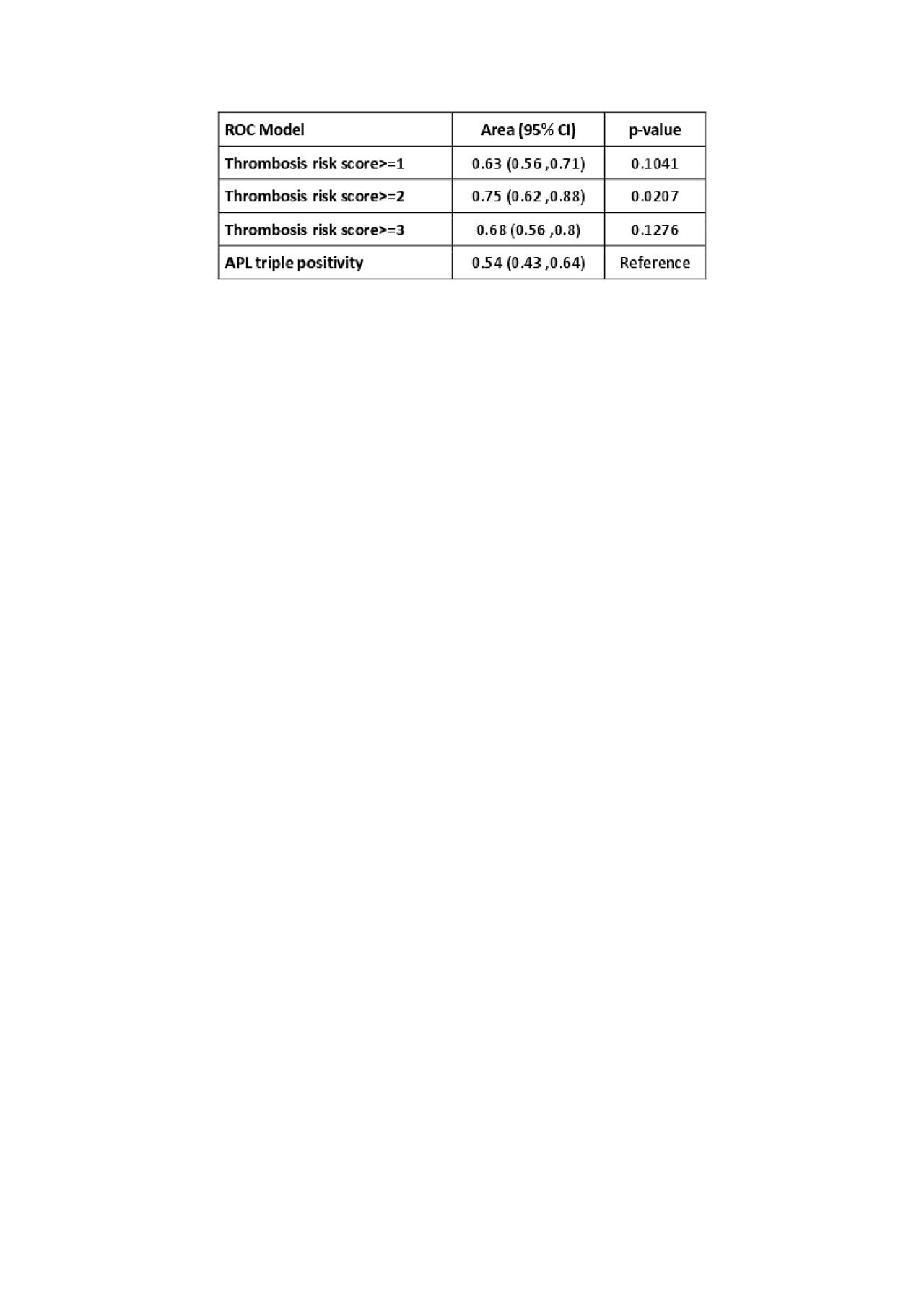Session Information
Date: Monday, November 11, 2019
Title: 3S082: SLE – Clinical II: Flares & Morbidity of SLE (1824–1829)
Session Type: ACR Abstract Session
Session Time: 2:30PM-4:00PM
Background/Purpose: We previously developed a Thrombosis Risk Score, a sum of three factors: lupus anticoagulant (by RVVT confirm); low C3; and C4d bound to platelets. We now compare the Thrombosis Risk Score to a widely used risk score for APS thrombosis, “triple positivity”, which is the presence of lupus anticoagulant, anticardiolipin, and anti-beta2 glycoprotein 1.
Methods: The study contained 149 SLE patients (85.9% female, 34.2% African American, 55.7% Caucasian). To evaluate the discriminatory performance of the fitted logistic models, the c-statistics, known as the area under the curve of the receiver operating characteristics (ROC curve), was calculated and 95% confidence intervals reported. The c-statistic is the proportion of predictions agreeing with the outcome (ability of the test to correctly classify those with and without thrombosis within the past 5 years).
Results: The area under the curves ranged from 0.54 (95% CI: 0.43-0.64) for the triple positivity model to 0.75 (95% CI: 0.62-0.88) for the model with thrombosis risk score >=2 (Figure 1, Table 1). The model with a thrombosis risk score of at least 2 points demonstrated better discrimination (AUC=0.75) while the model with triple positivity had the poorest performance (AUC=0.54). When comparing the thrombosis risk scores to triple positivity, the area of the thrombosis risk score >=2 ROC curve was significantly better.
Conclusion: The thrombosis risk score is superior to “triple positivity” in its association with any thrombosis (over the last 5 years) in SLE. The thrombosis risk score includes 2 pathways – low complement and platelets – not included in triple positivity.

ACR 2019 Abstract Comparison TE risk score Triple pos SLE-Figure1

ACR 2019 Abstract Comparison TE risk score Triple pos SLE-Table1
To cite this abstract in AMA style:
Petri M, Li J, Conklin J, O'Malley T, Ligayon J, Wolover L, Dervieux T. Comparison of the Thrombosis Risk Score with Triple Positivity in SLE Thrombosis [abstract]. Arthritis Rheumatol. 2019; 71 (suppl 10). https://acrabstracts.org/abstract/comparison-of-the-thrombosis-risk-score-with-triple-positivity-in-sle-thrombosis/. Accessed .« Back to 2019 ACR/ARP Annual Meeting
ACR Meeting Abstracts - https://acrabstracts.org/abstract/comparison-of-the-thrombosis-risk-score-with-triple-positivity-in-sle-thrombosis/
